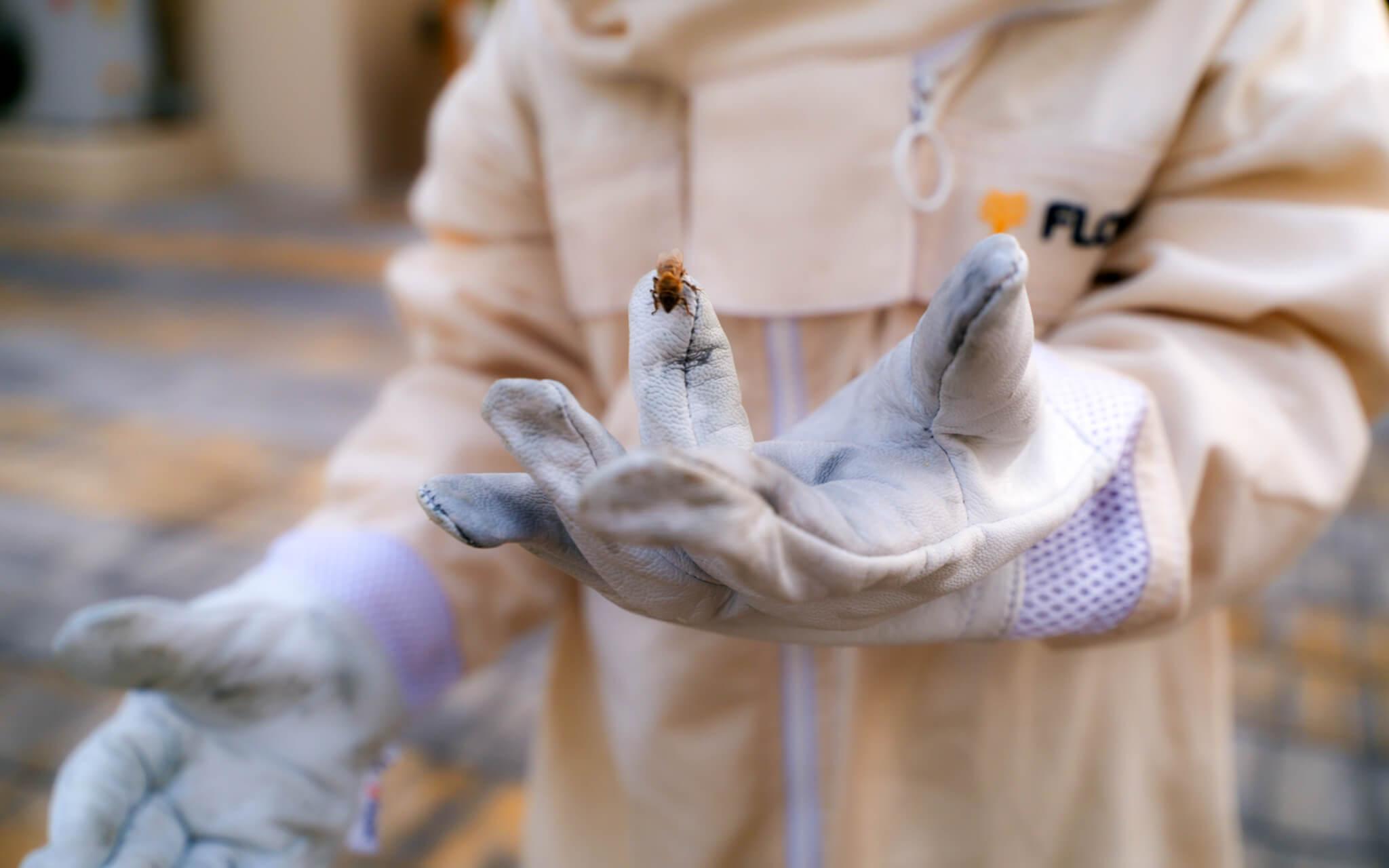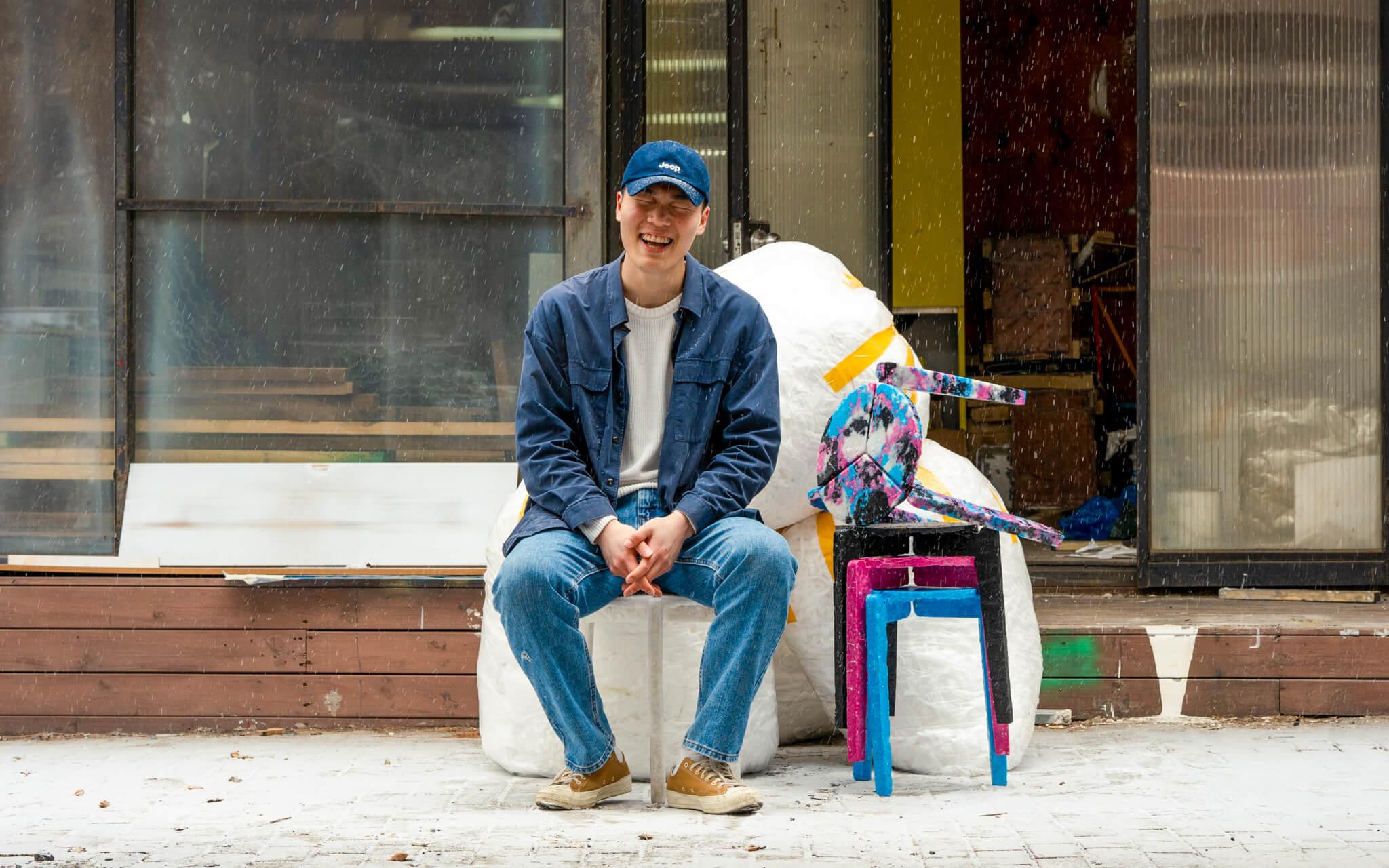The Optimistically Realistic Captain Planet
Dr Binish Desai, a social entrepreneur from India, is revolutionising the world of waste management. His projects, which range from making eco-bricks to repurposing invasive plants into building materials, offer innovation and optimism.
Binish Desai was nine years old when he decided to do something to help the planet’s declining health. Sitting in front of the TV, watching Captain Planet, his favourite (along with Dexter’s Laboratory), the news about climate change settled into the pit of his stomach; all those climate disasters portrayed in the cartoon started to seem like a possible reality.
“I thought to myself, ‘Let me start doing something about it.’” And he got to work, quite literally, right away.
“I built my first invention when I was 10,” Binish shares. Inspired by Dexter’s Laboratory, Binish invented a machine that collected condensation from the kitchen to generate water for gardening. Then, a year later, when he accidentally sat on a chewing gum, he removed the gum with a piece of paper and discovered later that the ball and the paper had hardened. This discovery led Binish to the process of “waste of wastes,” turning chewed gum or low-value plastics into valuable materials.
However, Captain Binish was without any Planeteers.
“The first big challenge I faced was trying to market my products convincingly as a 16-year-old,” he jokes. Binish started his business of making eco-bricks after he returned from his high school exchange program in Waukegan, U.S., where his American host family encouraged him to pursue his passion. “There was no blueprint to what I wanted to do,” Binish shrugs.
However, he needed to prove that the bricks he made were not only cheaper, eco-friendly alternatives but also outstanding in quality. Over the next 11 months, Binish built a small house using bricks made from PPE facemasks, papermill waste and eco-friendly binder.
Rather than receiving investments, Binish manufactured bricks based on the orders he received. What started with pure grit and twenty dollars in his pocket gained international recognition and interest.
“When I was 23, I decided to bring on a few investors for the first time,” Binish recalls. “The people who said they were interested in investing in my company had no intention of doing so from the beginning. They were only after our technology for their gains.”
Eventually, the “investors” took over Binish’s business with a bear hug, causing him to leave the company he built from the ground up. Without any bitterness in his tone, he continues, “I’m glad it happened because it made me learn that I had the strength to rise again.” Binish went on and built another company with the patents and technology he kept.
Then, he was named Forbes Asia’s 30 Under 30 for leading his innovative waste management group, Eco Eclectic. “I realised that others can have negative intentions towards you, but you can still gain positive outcomes.”
Today, Binish is spearheading two exciting projects in India and the US. At his company, ReArtham, in India, Binish is developing ways to combat lantana camara, an invasive plant species in India that’s consuming the native habitat of local wildlife. “We are creating plywood-like material out of them to combat their overgrowth and the overuse of timber.” This year, Binish won the 2024 Quiet Innovator’s Award for his invention of “Lantana Eco Wood.”
In the US, through one of his many companies, Eureka Ecoinnovations, Binish is tackling coal gob issues in rural towns scathed by the mining industry. And for those who aren’t familiar with the term, coal gob refers to a material left over from coal mining, a byproduct that releases toxins when burned. “It’s a mountain of coal refuse that can be as big as 18 acres wide and 500ft tall,” Binesh describes, painting a picture of hazardous waste that burdens vulnerable communities.
I believe if we all come together to take small steps that are realistic, that would lead to a larger change in the future.
However, Binish and his Eureka Eco team have been working on converting coal gob into reusable construction materials, providing one more way to repurpose debris.
Binish stays spirited even when he talks about the trials and errors of his endeavours—be it the unending process of experimenting with eco-friendly materials or the overwhelming scale of newly discovered industrial waste.
He simply wants to be a part of the solution.
When asked if he’s an optimist, Binish answers, “An optimistic realist?” He smiles and tilts his head, considering, “I believe if we all come together to take small steps that are realistic, that would lead to a larger change in the future.”
He adds, “If we keep feeding into apathy and cynicism, nothing will get done – we’re just giving up.” According to Binish, until the word “waste” finds a new meaning of “something useful,” he’s going to keep working in his lab.
Captain Binish might not have the rings and the Planeteers, but what he does have are the values he learned from his childhood heroes and the power of realistic optimism.
“My name ‘Binish’ means ‘without darkness’ or ‘spreading light,’ he says. “I’ve always wanted to be that light in the works I do for others.”
Most Popular
The Climate Tribe delivers stories about Biodiversity and Conservation, Circular Economy, Food and Water , and how they intersect with climate.
Subscribe
Get the latest stories inspiring climate action around the globe straight to your inbox.






